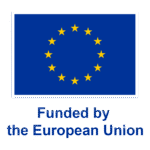
Funded by the European Union. Views and opinions expressed are however those of the author(s) only and do not necessarily reflect those of the European Union or the European Research Executive Agency (REA). Neither the European Union nor the granting authority can be held responsible for them.
10 October 2025, Xiamen (China)
NEXRUR Project Launches to Drive Sustainable Rural Innovation Across Europe and China
Project Duration: 1 October 2025 – 30 September 2029
Call topic: HORIZON-CL6-2024-COMMUNITIES-02-2-two-stage – New sustainable business and production models for farmers and rural communities (RIA)
Full name: Next generation sustainable business models and monitoring for rural resilience and innovation
Budget: € 5 999 774,50
The NEXRUR project officially kicked off today in Xiamen, China. A European launch will follow in Potsdam, Germany, on 22 October 2025. With this start, the project begins its mission to foster next-generation, innovative, and sustainable business models in rural areas across Europe and China, all built on a shared vision of community-led entrepreneurship.
Across both continents, rural areas, agriculture, and aquaculture are facing major economic, social, and environmental challenges. Issues such as climate change, biodiversity loss, and water scarcity are putting increasing pressure on communities. As a result, there is an urgent need for new and improved business and production models that address these challenges while promoting sustainability and long-term resilience.
The main objective of NEXRUR is to investigate the dynamics of innovation and strategies for change in rural areas. Through international cooperation between the EU and China, the project will enable farmers and their communities to develop, select, and upscale sustainable business models. At the same time, it will monitor their economic, social, and environmental impact on rural resilience.
“With NEXRUR, we share knowledge and best practices between Europe and China to support farmers and communities in rural areas co-design and co-create sustainable business models through a network of established community-led cases. By combining knowledge, practice, and international cooperation, we aim to strengthen rural resilience, generating more jobs, better services, improved access to healthy food, and greater value for agriculture.”
– says Philipp Grundmann, Project Coordinator at the Leibniz Institute for Agricultural Engineering and Bioeconomy (ATB).
Building Knowledge Through Collaboration
Furthermore, NEXRUR will generate new knowledge on community-led agricultural business models by bringing together conceptual and practical research. This approach will contribute to a solid knowledge base and facilitate co-design and co-innovation through a network of 22 diverse community cases (15 in the EU and 7 in China) and 7 selected start-up cases (5 in the EU and 2 in China).
In addition, the project will assess and verify the social and environmental performance of community-led agricultural and aquaculture businesses. These assessments will take place across different contexts, agri-food value chains, pedoclimatic zones, and socioeconomic conditions in both the EU and China.
From Research to Real-World Impact
As a result, NEXRUR will deliver a comprehensive summary of tested and improved pathways, strategies, tools, and policy recommendations to support the successful development of community-led business models. Both the newly generated knowledge and a monitoring framework for agricultural and aquaculture enterprises will be widely disseminated across the EU, China, and beyond.
This dissemination aims to inspire the adoption of innovative production activities that can improve farmers’ prosperity and strengthen rural resilience.
A Global Collaboration for Local Change
NEXRUR officially began its activities on 1 October 2025 and will run for four years. The project consortium is coordinated by the Leibniz Institute for Agricultural Engineering and Bioeconomy (ATB, Germany) and brings together a total of 30 partners across Europe and China, including universities, research institutions, and rural development networks such as ELARD
You can follow the project’s progress and stay updated on results and activities through its LinkedIn page and official project website.

